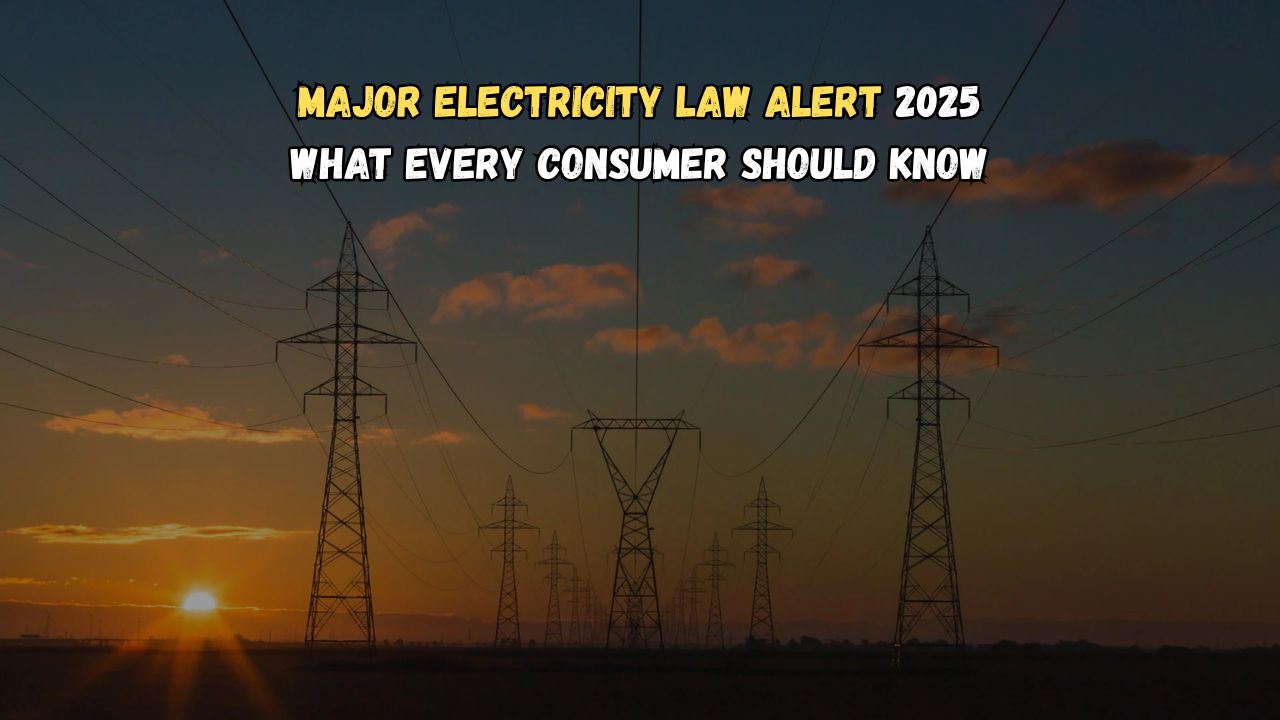South Africa’s 2025 Electricity Law Changes: As South Africa approaches 2025, significant updates to the national electricity laws are on the horizon, presenting both opportunities and challenges for businesses and consumers alike. The government aims to address the country’s energy crisis by introducing reforms that promise a more sustainable and reliable power system. These changes are expected to impact everything from electricity pricing to renewable energy incentives, prompting a nationwide call for preparation and adaptation. The revisions are set to reshape how electricity is generated, distributed, and consumed, ensuring a more resilient infrastructure that aligns with global standards. As the deadline looms closer, stakeholders across the energy sector are urged to stay informed and proactive to navigate this transformative period effectively.
Understanding the Key Changes in South Africa’s 2025 Electricity Law
One of the most critical aspects of South Africa’s 2025 electricity law changes is the emphasis on diversifying the energy mix. The government plans to reduce dependency on coal, which has long been the backbone of South Africa’s energy production. Instead, there’s a strong push towards integrating more renewable energy sources such as solar, wind, and hydroelectric power. This shift is not only environmentally necessary but also economically prudent, as it promises to create jobs and attract foreign investment. The legislation will likely include tax incentives and subsidies for businesses and individuals investing in renewable energy technologies, making it more accessible and appealing. Furthermore, there is an anticipated restructuring of the national grid to enhance efficiency and accommodate the influx of new energy sources. These changes necessitate a thorough understanding and timely adaptation by all stakeholders to ensure a seamless transition to a greener energy landscape.
Preparing for the Impact of South Africa’s 2025 Electricity Reforms
As South Africa gears up for these sweeping electricity law reforms in 2025, preparation is crucial for minimizing disruption and maximizing benefits. Businesses, in particular, need to conduct comprehensive energy audits to assess their current consumption patterns and identify areas for improvement. Investing in energy-efficient technologies and infrastructure can significantly reduce long-term operational costs and enhance sustainability credentials. Additionally, consumers should be aware of potential changes in electricity tariffs, which might fluctuate as the country shifts towards a more sustainable energy model. Being proactive about understanding and adapting to these changes will be key. Workshops and seminars hosted by industry experts can provide valuable insights and guidance on navigating the new energy landscape. Stakeholders are encouraged to engage with policy-makers to voice concerns and suggestions, ensuring that the transition is inclusive and considers the needs of all sectors of society.
Opportunities Arising from South Africa’s 2025 Electricity Law Updates
While the 2025 electricity law updates present challenges, they also unlock a myriad of opportunities for innovation and growth. Entrepreneurs and startups focused on green technology stand to benefit immensely as the demand for sustainable solutions surges. There is a ripe market for developing new energy storage systems, smart grid technologies, and efficient energy management platforms. These innovations not only align with global trends but also position South Africa as a leader in the renewable energy sector. Additionally, the law changes encourage private sector participation in electricity generation, allowing for greater competition and potentially lower costs for consumers. Educational institutions and training centers have the opportunity to expand their curricula to include renewable energy courses, preparing the next generation of professionals to thrive in this evolving industry. By capitalizing on these opportunities, South Africa can foster a robust energy sector that supports economic growth and environmental stewardship.
Challenges of Adapting to South Africa’s 2025 Electricity Law Revisions
Despite the promising prospects, the transition to the new electricity laws in 2025 is not without its challenges. The primary hurdle is the significant upfront investment required for infrastructure upgrades and the adoption of new technologies. Many small and medium enterprises may find it difficult to allocate resources for these changes without adequate financial support and incentives. Moreover, there is a need for comprehensive education and training programs to equip the workforce with the skills necessary to operate and maintain new energy systems. Another challenge lies in ensuring equitable access to the benefits of these reforms across different socio-economic groups. Policymakers must address potential disparities to avoid exacerbating existing inequalities. Additionally, the reliance on renewable energy sources introduces variability in power supply, necessitating robust contingency plans to manage fluctuations. Overcoming these challenges will require a collaborative effort between the government, private sector, and civil society to ensure a smooth and equitable transition to a more sustainable energy future.

